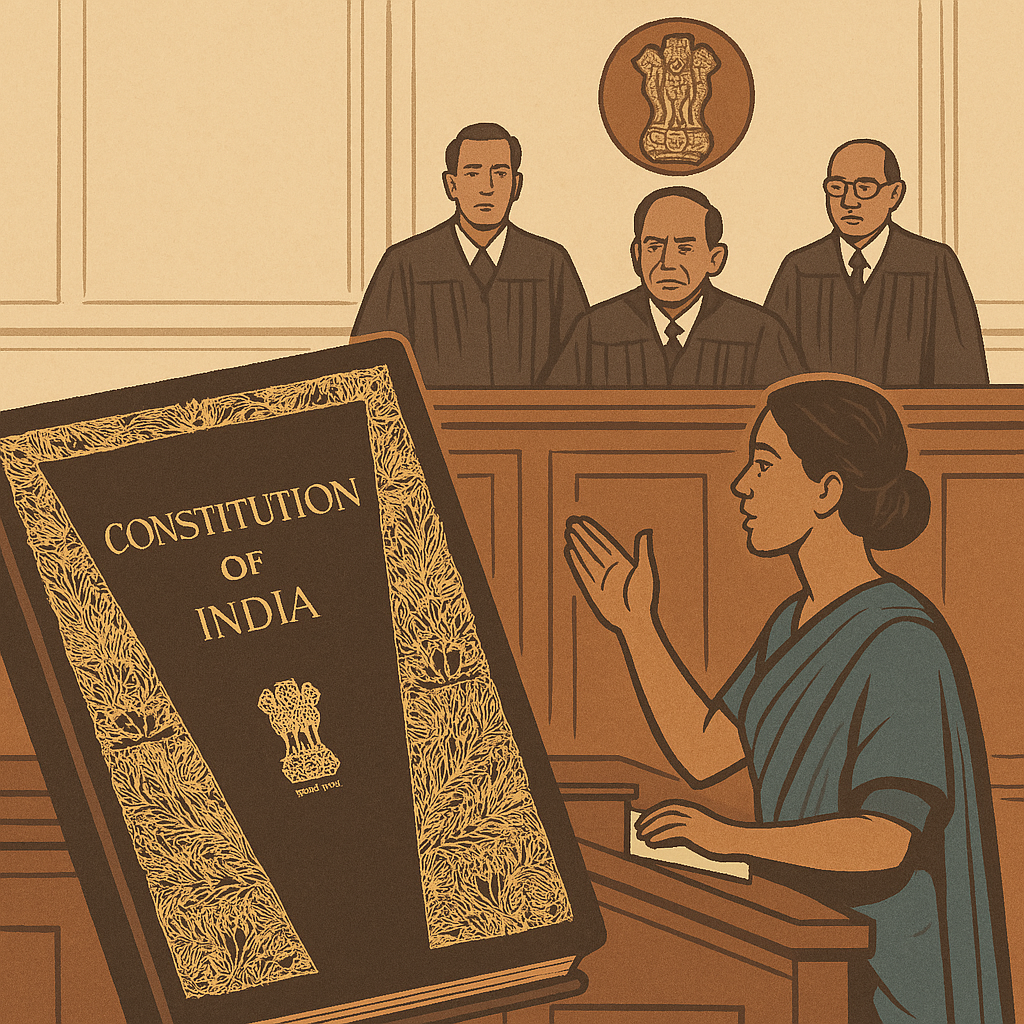⚖️ Landmark Case: Navtej Singh Johar v. Union of India (2018)
📝 Summary:
In Navtej Singh Johar v. Union of India, the Supreme Court decriminalized homosexuality by striking down parts of Section 377 IPC, affirming that LGBTQ+ rights are fundamental rights under the Constitution.
📚 Background
Section 377 of the Indian Penal Code, a colonial-era law from 1861, criminalized “carnal intercourse against the order of nature,” which included homosexual relationships. Though rarely enforced, it was often used to harass and discriminate against the LGBTQ+ community.
In 2013, the Supreme Court in Suresh Kumar Koushal v. Naz Foundation upheld Section 377, reversing the 2009 Delhi High Court ruling that had decriminalized homosexuality.
In 2016, five petitioners, including Navtej Singh Johar, a classical dancer, approached the Court again, challenging the constitutionality of Section 377.
🧑⚖️ Supreme Court Verdict
In a historic unanimous verdict (5-0), the Court struck down parts of Section 377 that criminalized consensual gay sex between adults.
Key points from the judgment:
-
Section 377 is unconstitutional insofar as it criminalizes consensual same-sex acts
The Court held that such criminalization violated Article 14 (equality), Article 15 (non-discrimination), Article 19 (freedom of expression), and Article 21 (right to life and dignity). -
Overruled Suresh Koushal case
The Court declared that the 2013 ruling was wrong and inconsistent with constitutional morality. -
Sexual orientation is a core part of identity
The judgment emphasized that individual dignity, privacy, and choice are at the heart of the Constitution.
“History owes an apology to the members of the LGBTQ+ community.”
🧠 Significance
-
This ruling decriminalized homosexuality in India.
-
It empowered millions of Indians to live openly without fear of legal persecution.
-
Marked a significant step toward LGBTQ+ inclusion, acceptance, and equality in the country.
🧩 Conclusion
Navtej Singh Johar v. Union of India was more than a legal ruling—it was a cultural and social milestone. The judgment celebrated the values of individual freedom, dignity, and love, reminding us that constitutional morality must trump outdated social prejudices.

